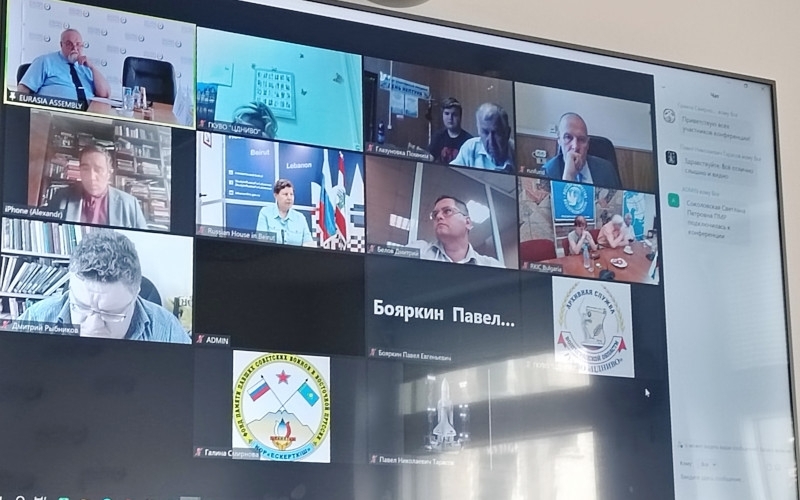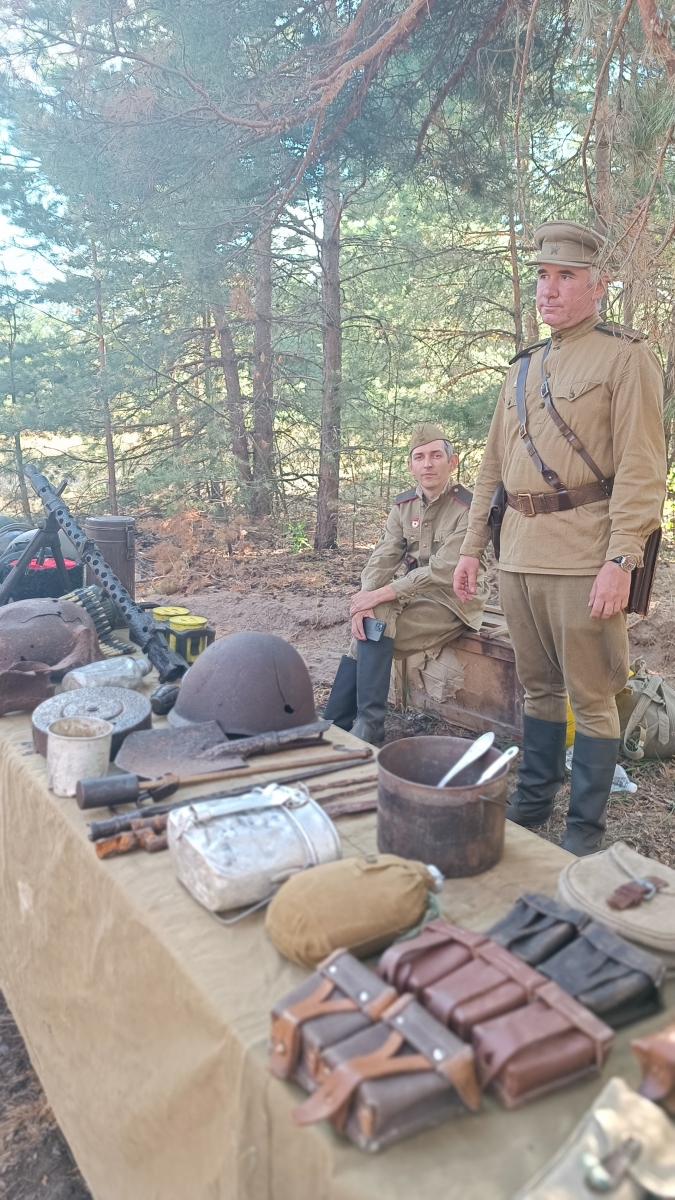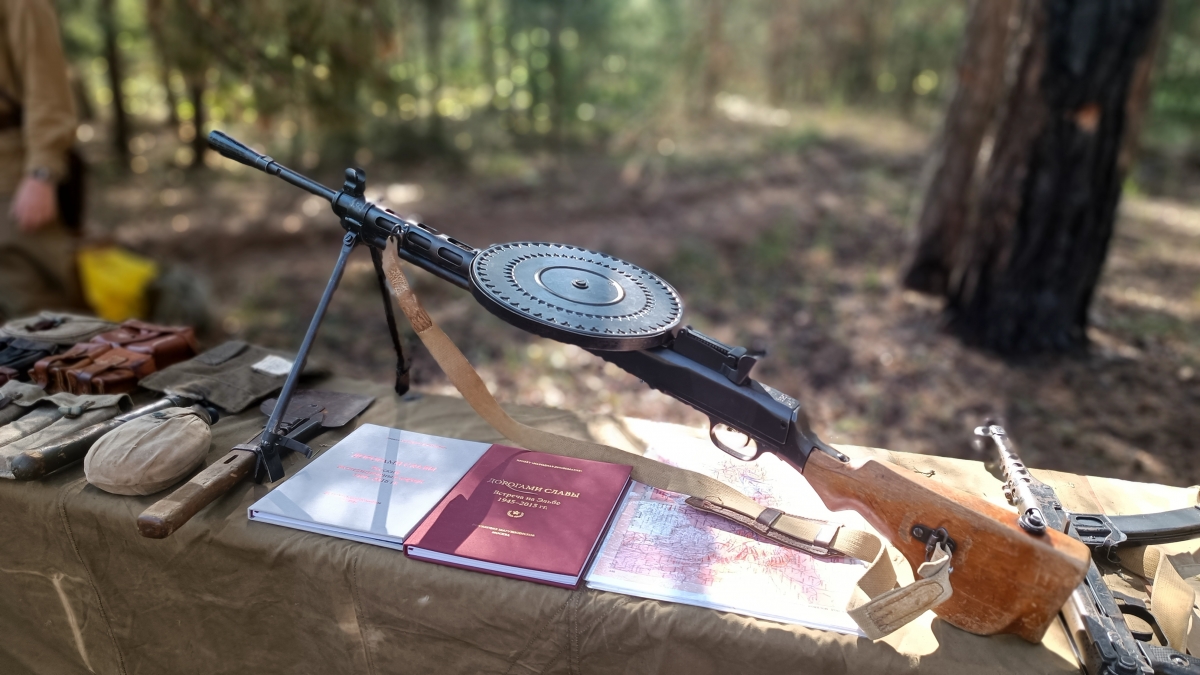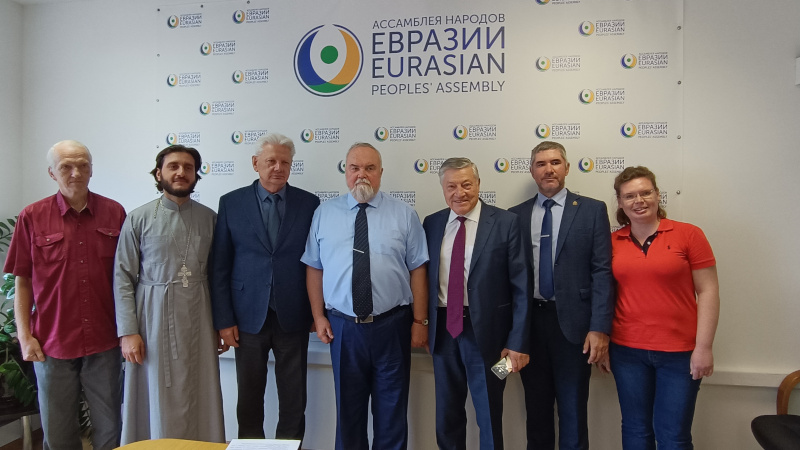
In the photo: online participants of the International Public Forum, dedicated to the 80th anniversary of the Battle of Stalingrad
On July 20, 2022, the International Public Forum for the Preservation of Memory dedicated to the 80th anniversary of the beginning of the Battle of Stalingrad was held at the headquarters of the Eurasian Peoples' Assembly in Moscow.
One of the most fierce and bloody battles in world history was a significant event not only during the Great Patriotic War, but throughout the Second World War. It was with the defeat of the Nazi troops near Stalingrad that the turning point in the war began, culminating in the complete defeat of fascism on Earth. The decisive role in the Victory was played by the people of the USSR, who selflessly gave their lives and strength for the sake of victory. Truly, the Battle of Stalingrad was not just a military battle, it was a battle of good against evil.

Left: Yury Valentinovich Malyshev, Chairman of the Board of the Association of Combat Veterans of the Internal Affairs Bodies and Internal Troops of Russia, Valery Mikhailovich Kuznetsov, Deputy Chairman of the Board of the Association of Combat Veterans of the Internal Affairs Bodies and Internal Troops of Russia, Hieromonk Kirill Peregudin, representative of the Far Abroad Department of the Moscow Patriarchy. Right: Nikolai Vladimirovich Chuikov, grandson of twice Hero of the Soviet Union, Marshal Vasily Ivanovich Chuikov, founder of the Marshal V.I. Technological Academy of Sciences
Veterans of military operations in Afghanistan who were present at the forum noted that it is simply impossible for those who were not there to imagine what happened in Stalingrad during those 200 days. On each of these days, Soviet soldiers had to repel four or five Nazi attacks, the Volga was on fire, it was impossible and nowhere to retreat. The army of General Paulus was so superior in numbers and military power to the Soviet one that Hitler said to his chief commander: “With your army, you can storm the sky." After the transition of the strategic initiative to the side of the Soviet troops, Marshal Chuikov could not believe in the General Staff that, being in such an uncomfortable position, he managed not only to break the superiority of the opponent, but also to launch a successful counteroffensive. According to the grandson of Vasily Ivanovich, academician Nikolai Chuikov, his grandfather did not deny divine providence in the outcome of the Battle of Stalingrad, and it more than once saved him in hopeless situations.
Hieromonk Kirill Peregudin continued the thought of Nikolai Vladimirovich that the battles in Stalingrad were perceived by both believers and atheists as a metaphysical struggle between good and evil. He cited documented data on the soldiers who passed through Stalingrad and became clergymen. Many Soviet people later gained faith. Already in 1947, a front-line soldier Kartashov, who was awarded the Order of the Red Star and two medals, became a priest in Stalingrad. After Stalingrad, Archpriest Gleb Kolyada secretly accepted the priesthood, understanding the complexity of religious issues in the Soviet era. Bishop Leonid participated in battles with the rank of foreman, and also had awards. After demobilization, he returned to serving in the church. The minister of the church of the Ryazan region, Mikhail Gratsinsky, defended Stalingrad and then returned to service. He left memories:
“The situation there was difficult. But we steadfastly repulsed the attacks, ready to defend Stalingrad or die in battle with a hated enemy!”
Nikolai Chuikov noted that the words "Stand to the death!" came from the heart of every soldier in Stalingrad. He said that Vasily Ivanovich Chuikov did not follow the order "Not a step back!" when it came to ordinary soldiers. He took into account the human factor and knew that after a while the warrior would be ready for battle. He also debunked the myth of detachments in Stalingrad. According to his grandfather, there was simply nowhere to put them, except perhaps in the water of the Volga River.
“For us, the soldiers and commanders of the 62nd Army, there is no land beyond the Volga. We have stood and will stand to the death!” - these words of sniper Vasily Zaitsev are engraved on the Square of those who stood to death on Mamaev Kurgan.

In the photo: Member of the Bulgarian Parliament Angel Dimov
The forum was attended by Bulgarian historians Professor Nina Belgerova and member of the Bulgarian Parliament Angel Dimov. All of them expressed a unanimous position that the peoples of the USSR saved the world from Nazism and there can be no falsifications on this subject. Also, the Bulgarians should remember and pass on to the younger generations the truth that on September 8, 1944, the troops of the 3rd Ukrainian Front entered the territory of Bulgaria and liberated it by the end of the month. From September 28 to October 20, 1944, the 3rd Ukrainian Front, in cooperation with the People's Liberation Army of Yugoslavia, with the participation of the troops of the Fatherland Front of Bulgaria, carried out the Belgrade strategic operation, as a result of which the capital of Yugoslavia, Belgrade, and most of Serbia were liberated.
As in every session of the International Public Forum of the Eurasian Peoples' Assembly, the participants exchanged specific ideas and developments in the patriotic education of the youth of all countries that participated in World War II on the side of the anti-Hitler coalition.
Hieromonk Kirill Peregudin, who has organized many exhibitions and events of the Representation for Far Abroad Affairs of the Moscow Patriarchate, based on his own experience and childhood memories, believes that nothing can replace a living word that comes from the soul from grandfathers to grandchildren as a tradition. All participants agreed that formal "propaganda" would not resonate in anyone's heart.

In the photo: “The Guards” Center for the Support and Development of Patriotic Education presents military artifacts at the opening of the memorial to the Polish Army in Ryazan
Yevgeny Tomshin spoke about the methods enthusiasts discovered for themselves at “The Guards” Center for the Support and Development of Patriotic Education. The center believes that participation in the reconstruction of historical events is the most popular among adolescents and young people. Adding to these real weapons from the time of reconstructed battles, which the guys are allowed to disassemble, study and use under the supervision of experienced instructors, the "Guard" has ensured that its pupils began to show interest in participating in Memory Watches, search work, studying the combat path of military formations according to archival documents.

The President of the Battle of Stalingrad Foundation, historian Dmitry Belov, said that during the Second World War, residents of 703 British settlements expressed their desire to provide humanitarian assistance to Stalingrad. The first cities were Coventry and London. As you know, it was from Coventry and Stalingrad that the tradition of sister cities around the world began. In 1943, Emily Smith, Mayor of Coventry, and 830 other women (and a few men) wrote their names on a tablecloth. Each of them had to pay six pence for the signature to the Stalingrad medical aid fund. In the next two years, Mae Adams embroidered these names on the tablecloth. Residents of Coventry donated money and a tablecloth with embroidered words: “Better a little help than a big regret” to the war-torn Stalingrad through the Soviet embassy in London. This event gave rise to the development of the sister city movement throughout the world and laid its philosophical foundation.
The forum laid the foundation for the creation of the Association of the Descendants of the Battle of Stalingrad. Svetlana Sokolovskaya, head of the cultural center "My Orthodox Motherland" of the Pridnestrovian Moldavian Republic, together with her colleagues, worked in the archives of the military registration and enlistment offices of the cities of the PMR and established that 120 people from the city of Dubosari participated in the Battle of Stalingrad. To date, Sokolovskaya has managed to establish the names of fifty. The work on establishing personalities and their combat path will continue further together with schoolchildren and students who have shown interest in this topic.
The working group will include representatives of the Association of Combat Veterans of Internal Affairs Bodies and Internal Troops of Russia. Work will begin shortly. The purpose of creating the Associations of Descendants, a project of the Eurasian Peoples' Assembly, is, having found descendants or people with reliable documented information, to present on an interactive media platform the fighters of all divisions of the Great Patriotic War with a description of their combat and life path. Implement the slogan "All by name!" in life.

From left to right: Representative of the Association of Combat Veterans of Internal Affairs Bodies and Internal Troops of Russia, Hieromonk Kirill Peregudin, Valery Kuznetsov, Nikolai Chuikov, Yuri Malyshev, Evgeny Tomshin, Marina Abramova (Teacher's Newspaper)
The International Public Forum dedicated to the 80th anniversary of the beginning of the Battle of Stalingrad was attended by representatives of the Eurasian Peoples’ Assembly, the Volgograd regional branch of the Assembly of peoples of Russia, the Foundation for Support and Protection of the Rights of Compatriots Living Abroad, the Moscow Patriarchate, the organizers of the Immortal Regiment action in China, representatives of the Teacher's Newspaper, the Daugavpils Russian Community of Latvia, the Battle of Stalingrad Foundation, the “My Orthodox Motherland” Cultural Center of the Pridnestrovian Moldavian Republic, the “Historical Memory” Foundation, the Glazunov Agricultural College, the patriotic movement “Glazunovka.remember”, the Russian House in Beirut , Lebanese University.
The forum was moderated by the famous historian Alexander Dyukov.


